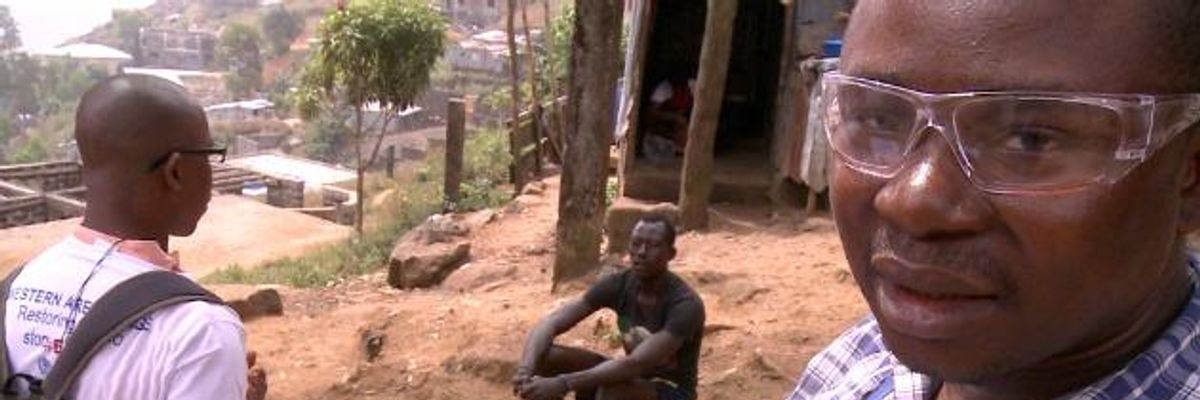The Ebola death toll in the three West African countries most impacted by the virus has climbed to at least 7,373 of 19,031 known infections, the World Health Organization revealed in data released Saturday.
Western Sierra Leone is the "hotspot" of the ongoing outbreak, according to the WHO, which notes that this country has the highest infection rate, followed by Liberia and then Guinea.
However, Liberia accounts for far more Ebola deaths, leading some to question the accuracy of the WHO's statistics on infection rates.
Nonetheless, the data shows an increase in overall cases, which are up by 500 since WHO data was last released on December 17.
The numbers were released following news Friday that Sierra Leone's top-ranking doctor had succumbed to Ebola, making him the 11th of the country's 120 doctors to die from the disease, according to the Guardian.
Meanwhile, humanitarian aid workers have criticized the global community for its failure to respond adequately as West African governments and grassroots initiatives such as the Citizens Alliance to Stop Ebola in Liberia struggle to stem the ongoing emergency.
"The international response to the Ebola crisis in West Africa has been slow and uneven leaving local people, national governments and non-governmental organizations (NGOs) to do most of the practical, hands-on work," the NGO Doctors Without Borders//Medecins Sans Frontieres declared earlier this month.
The lackluster global response comes despite the fact that Western-driven economic policies played a key role in gutting West African public health systems.
"People are still dying horrible deaths in an outbreak that has already killed thousands," said Dr. Joanne Liu, MSF international president. "We can't let our guard down and allow this to become double failure, a response that was slow to begin with and is ill-adapted in the end."

